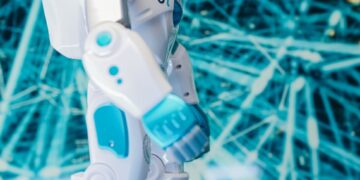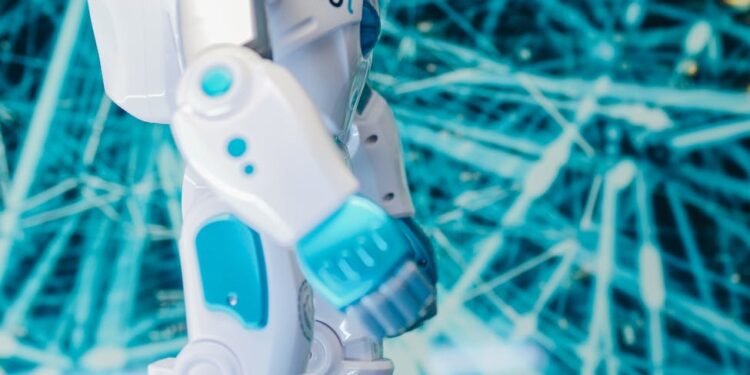The landscape of global industry is undergoing an unprecedented transformation, driven by the relentless acceleration and deep integration of Artificial intelligence. What was once considered a futuristic concept or an emerging trend has unequivocally evolved into a fundamental, pervasive force reshaping every facet of commerce, innovation, and daily operations. This isn’t merely about adopting new tools; it represents a paradigm shift demanding immediate, strategic adaptation from organizations of all sizes, across every sector. The discussion has moved beyond “if” to “how” and “when,” necessitating not just technological implementation, but also a critical, ongoing conversation about its societal, ethical, and workforce implications. Failing to engage now is to risk obsolescence in an AI-driven future.
The inevitable paradigm shift
The notion of Artificial intelligence as a peripheral tool or an optional upgrade is now fundamentally outdated. We are witnessing a systemic re-architecture of industrial processes, business models, and even human capabilities, powered by AI. This isn’t just advanced automation; it’s the integration of cognitive functions – learning, reasoning, problem-solving, and decision-making – into machines and software, enabling them to operate at speeds and scales previously unimaginable. From optimizing supply chains in manufacturing to personalizing customer experiences in retail, and from accelerating drug discovery in pharmaceuticals to enhancing fraud detection in finance, AI’s tendrils extend into every operational nerve center. It’s redefining productivity, creating new categories of services, and demanding a complete rethinking of competitive strategy. This shift is characterized by its pervasiveness and its rapidity, leaving no industry untouched and granting no grace period for leisurely contemplation.
Industry-specific transformations and the competitive imperative
The abstract concept of AI’s integration becomes starkly real when we examine its tangible impact across diverse sectors. In healthcare, AI is revolutionizing diagnostics, personalizing treatment plans, and streamlining administrative tasks, promising more accurate care and reduced operational costs. Financial institutions leverage AI for sophisticated risk assessment, algorithmic trading, and hyper-personalized client advisory services, improving efficiency and identifying new revenue streams. The manufacturing sector is transforming with AI-driven predictive maintenance, quality control, and optimized production lines, leading to greater output and less downtime. Marketing and advertising are experiencing a renaissance through AI’s ability to analyze vast consumer data, predict behaviors, and create highly targeted campaigns, maximizing ROI. Education is adapting with AI-powered personalized learning platforms and administrative efficiencies. The imperative to adapt is no longer a strategic choice but a matter of survival, as early adopters gain significant competitive advantages, leaving those who hesitate struggling to catch up in a rapidly evolving market.
Here’s a glimpse into AI’s direct impact across key industries:
| Industry | AI application examples | Key benefits |
|---|---|---|
| Healthcare | Diagnostic imaging analysis, drug discovery, personalized medicine | Improved accuracy, faster R&D, tailored treatments |
| Finance | Fraud detection, algorithmic trading, credit scoring, personalized advice | Enhanced security, higher returns, reduced risk |
| Manufacturing | Predictive maintenance, quality control, supply chain optimization | Reduced downtime, improved product quality, cost savings |
| Retail & Marketing | Personalized recommendations, demand forecasting, customer service chatbots | Increased sales, better inventory management, enhanced customer experience |
| Education | Personalized learning paths, automated grading, administrative efficiency | Improved learning outcomes, reduced teacher workload |
The human element: upskilling, ethics, and collaboration
Amidst the technological fervor, the “critical conversation” surrounding AI’s integration centers squarely on its impact on humanity. Concerns about job displacement are valid, yet the narrative is more nuanced: AI will undoubtedly automate repetitive tasks, but it will also create new roles demanding uniquely human skills—creativity, critical thinking, emotional intelligence, and complex problem-solving. This necessitates a massive, proactive investment in upskilling and reskilling initiatives across the workforce, transforming education and corporate training. Beyond jobs, profound ethical considerations demand attention. Issues of AI bias, stemming from biased training data, can perpetuate or even amplify societal inequalities. Transparency in AI decision-making (the “black box” problem), data privacy, accountability for AI errors, and the potential for misuse are not mere footnotes but central pillars of responsible integration. A human-centric approach, fostering collaboration between AI and people rather than replacement, and establishing robust ethical frameworks are paramount to harnessing AI’s benefits justly and sustainably.
Strategic roadmap for sustained adaptation
For organizations navigating this transformative era, a reactive posture is a recipe for stagnation. A proactive, strategic roadmap for AI integration is essential, beginning with leadership vision. Top-down commitment is crucial to foster a culture that embraces experimentation, continuous learning, and data-driven decision-making. Developing a robust data strategy—understanding what data is available, how it can be collected, stored, and leveraged—forms the bedrock for effective AI implementation. Organizations should start with pilot projects, identifying specific business problems that AI can solve, iterating quickly, and demonstrating tangible value before scaling. Investing in talent, both by hiring AI specialists and by training existing employees, is non-negotiable. Furthermore, establishing clear governance structures and ethical guidelines is vital to ensure responsible deployment. This isn’t a one-time project but an ongoing journey of adaptation, requiring agile methodologies, continuous monitoring, and a willingness to evolve alongside the technology itself. The goal is not just to survive the AI revolution, but to thrive by strategically leveraging its transformative power.
As we’ve explored, the pervasive acceleration and integration of Artificial intelligence across every industry signifies far more than a passing trend; it represents a fundamental, irreversible shift demanding immediate and considered responses. From redefining operational efficiencies and competitive landscapes to fundamentally altering the nature of work and demanding deep ethical scrutiny, AI is reshaping the very fabric of our professional and societal structures. Organizations that recognize this shift as an imperative, proactively investing in technological infrastructure, robust data strategies, and human capital development through upskilling, will be best positioned to innovate and lead. Simultaneously, an ongoing, critical conversation about ethics, bias, and responsible governance is not optional but essential to ensure AI serves humanity equitably and sustainably. The future belongs not to those who merely witness this revolution, but to those who actively shape it with foresight, courage, and a commitment to responsible innovation.

















